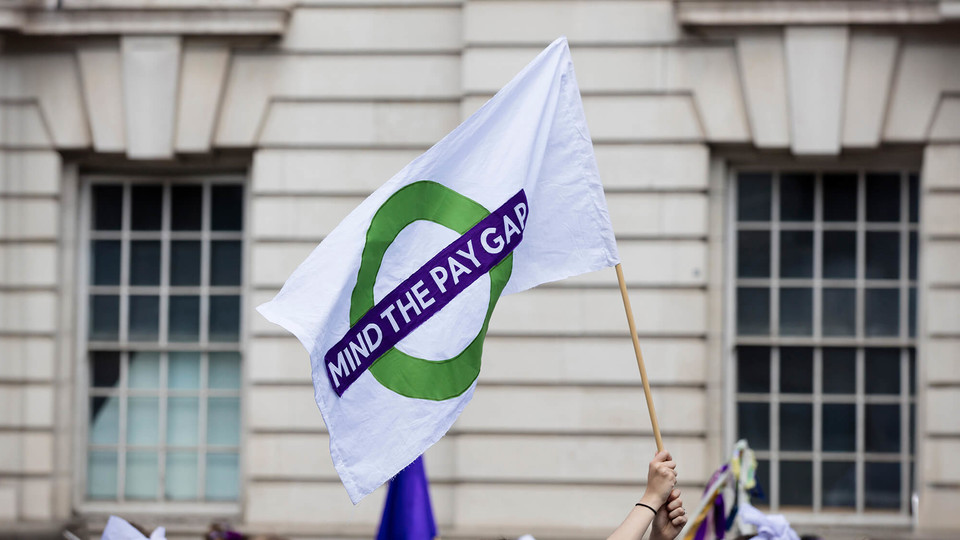
Can We Talk? How Religion Matters In Organizational Life
Religious Beliefs Can Help And Harm Business In Unexpected Ways
Based on research by Jennifer M. George, Suzanne Chan-Serafin and Arthur P. Brief
Religious Beliefs Can Help And Harm Business In Unexpected Ways
- Organizational scholars have, with few exceptions, avoided exploring religion in the workplace.
- The rise of openly faith-based organizations is an indicator that religion is playing a role in organizational life.
- The authors propose a rigorous but dispassionate exploration of religion in organizations.
“There are three things I have learned never to discuss with people: religion, politics and the Great Pumpkin!” — Linus
In the animated television special It’s the Great Pumpkin, Charlie Brown (1966), Linus echoed the cultural taboo on discussing religion in polite company. It’s poor etiquette, right? But the taboo on discussing religion seems to have squelched needed organizational research on the impacts of religious beliefs in the workplace. Jennifer George, Mary Gibbs Jones Professor Emeritus of Management at Rice Business, and her colleagues Suzanne Chan-Serafin at the University of New South Wales and Arthur Brief at the University of Utah recently studied this paucity of potentially valuable research and developed a theoretical framework and research agenda encouraging scholars to boldly go where Linus would not.
As George and her co-authors point out, employees do not leave their thoughts about religion at the workplace door. Just as individuals’ attitudes, values, moods, skills and behaviors spill over to influence their thoughts and actions in the workplace, employees’ religious beliefs may also spill over to influence their thoughts and actions in organizational life. To date, however, the sparse research on the topic has focused on the positive organizational outcomes of religion or spirituality. George and her colleagues call for a more a more balanced orientation, one that acknowledges both the potential benefits and challenges of religious beliefs in organizations.
To achieve this balance, George and her colleagues advise exploring the fundamental tensions between related positive and negative outcomes of religion at work. They view these tensions through a psychological lens focused on affect, cognition and behavior, rather than through a theological or philosophical lens.
One such tension is between the psychological traits of virtuousness versus “more-virtuous-than thou.” On the virtuousness side, research suggests that religious workers possess more character strengths such as agreeableness, conscientiousness and honesty. These traits may lead religious individuals to work diligently, which in turn boosts productivity. On the more-virtuous-than-thou side, some religious workers may fall victim to self-serving assessment biases. This well-established psychological phenomenon may result in flawed self-assessments such as “feeling holier than thou.” A biased manager may then have low expectations for subordinates, and withhold emotional and professional support. The subordinates’ experiences are thus limited and their confidence is lowered, resulting in poor performance.
George and her colleagues contend, though, that it is not enough to simply acknowledge the potentially positive and negative consequences of religious beliefs at work. For this research to be of use to managers and organizations, it must also explore the contexts in which one side of the tension is likely to prevail over the other side. For example, George and her co-authors suggest that a combination of intrinsically religious organizational members and self-identity threats in the workplace may cause otherwise virtuous members to succumb to a more-virtuous-than-thou orientation. Self-identity threats such as power imbalances and stereotypes are not uncommon in the workplace. When employees whose faith is fully integrated into their lives experience self-identity threats at work, these threats may trigger defense mechanisms leading the intrinsically religious to view themselves in a more positive but unrealistic light. This can result in them adopting a more-virtuous-than-thou orientation.
George and her colleagues identified a common thread to guide organizational researchers in exploring these and other benefit/challenge tensions set up by religion in the workplace. The team identified two kinds of forces that influence these tensions: individuals’ religiosity and beliefs in God, and the contexts in which religious organizational members are embedded. The particular combination of these two forces can drive either positive or negative outcomes. For managers, the important takeaway is that employees’ religiosity, in and of itself, does not necessarily have either positive or negative consequences. Instead, factors such self-identity threats or religious stimuli may “switch on” employees’ religious role identities.
So, religion clearly matters at the individual level, but what about the impact of religion at the organizational level? For example, how might religion matter when it is an organizational attribute such as it is in a Christian owned and operated business such as Chick-fil-A? On one hand, the authors theorize that organizational religiosity can lead to discrimination and uncomfortable work environments for employees who are religiously dissimilar from the majority. On the other hand, workers in faith-based organizations may engage in more prosocial organizational behaviors than those in secular organizations.
George and her colleagues have opened the door to discussing religion at work. As scholars rise to the challenge of broaching this largely taboo topic, managers and organizational leaders too can benefit by better understanding both the positive and negative outcomes of religion at work.
Jennifer M. George is the Mary Gibbs Jones Professor Emeritus of Management in Organizational Behavior.
To learn more, please see: Chan-Serafin, S., Brief, A. P., & George, J. M. (2013). How does religion matter and why? Religion and the organizational sciences. Organization Science, 24(5), 1585–1600.
Never Miss A Story


